第4章 Chapter 1 THE TWO NEEDFUL READJUSTMENTS(3)
One of these is that the very essence of it was that He critically examined religion as He found it, and brought His robust common sense and courage to bear in exposing the shams and in pointing out the better path. That is the hall-mark of the true follower of Christ, and not the mute acceptance of doctrines which are, upon the face of them, false and pernicious, because they come to us with some show of authority. What authority have we now, save this very life, which could compare with those Jewish books which were so binding in their force, and so immutably sacred that even the misspellings or pen-slips of the scribe, were most carefully preserved? It is a simple obvious fact that if Christ had been o rthodox, and had possessed what is so often praised as a "child-like faith," there could have been no such thing as Christianity. Let reformers who love Him take heart as they consider that they are indeed following in the footsteps of the Master, who has at no time said that the revelation which He brought, and which has been so imperfectly used, is the last which will come to mankind. In our own times an equally great one has been released from the centre of all truth, which will make as deep an impression upon the human race as Christianity, though no predominant figure has yet appeared to enforce its lessons. Such a figure has appeared once when the days were ripe, and I do not doubt that this may occur once more.
One other consideration must be urged. Christ has not given His message in the first person. If He had done so our position would be stronger. It has been repeated by the hearsay and report of earnest but ill-educated men. It speaks much for education in the Roman province of Judea that these fishermen, publicans and others could even read or write.
Luke and Paul were, o f course, of a higher class, but their information came from their lowly predecessors. Their account is splendidly satisfying in the unity of the general impression which it produces, and the clear drawing of the Master's teaching and character. At the same time it is full of inconsistencies and contradictions upon immaterial matters. For example, the four accounts of the resurrection differ in detail, and there is no orthodox learned lawyer who dutifully accepts all four versions who could not shatter the evidence if he dealt with it in the course of his profession. These details are immaterial to the spirit of the message. It is not common sense to suppose that every item is inspired, or that we have to make no allowance for imperfect reporting, individual convictions, oriental phraseology, or faults of translation. These have, indeed, been admitted by revised versions. In His utterance about the letter and the spirit we could almost believe that Christ had foreseen the plague of texts from which we have suffered, even as He Himself suffered at the hands of the theologians of His day, who then, as now, have been a curse to the world.
We were meant to use our reasons and brains in adapting His teaching to the conditions of our altered lives and times. Much depended upon the society and mode of expression which belonged to His era. To suppose in these days that one has literally to give all to the poor, or that a starved English prisoner should literally love his enemy the Kaiser, or that because Christ protested against the lax marriages of His day therefore two spouses who loathe each other should be for ever chained in a life servitude and martyrdom -- all these assertions are to travesty His teaching and to take from it that robust quality of common sense which was its main characteristic.
To ask what is impossible from human nature is to weaken your appeal when you ask for what is reasonable.